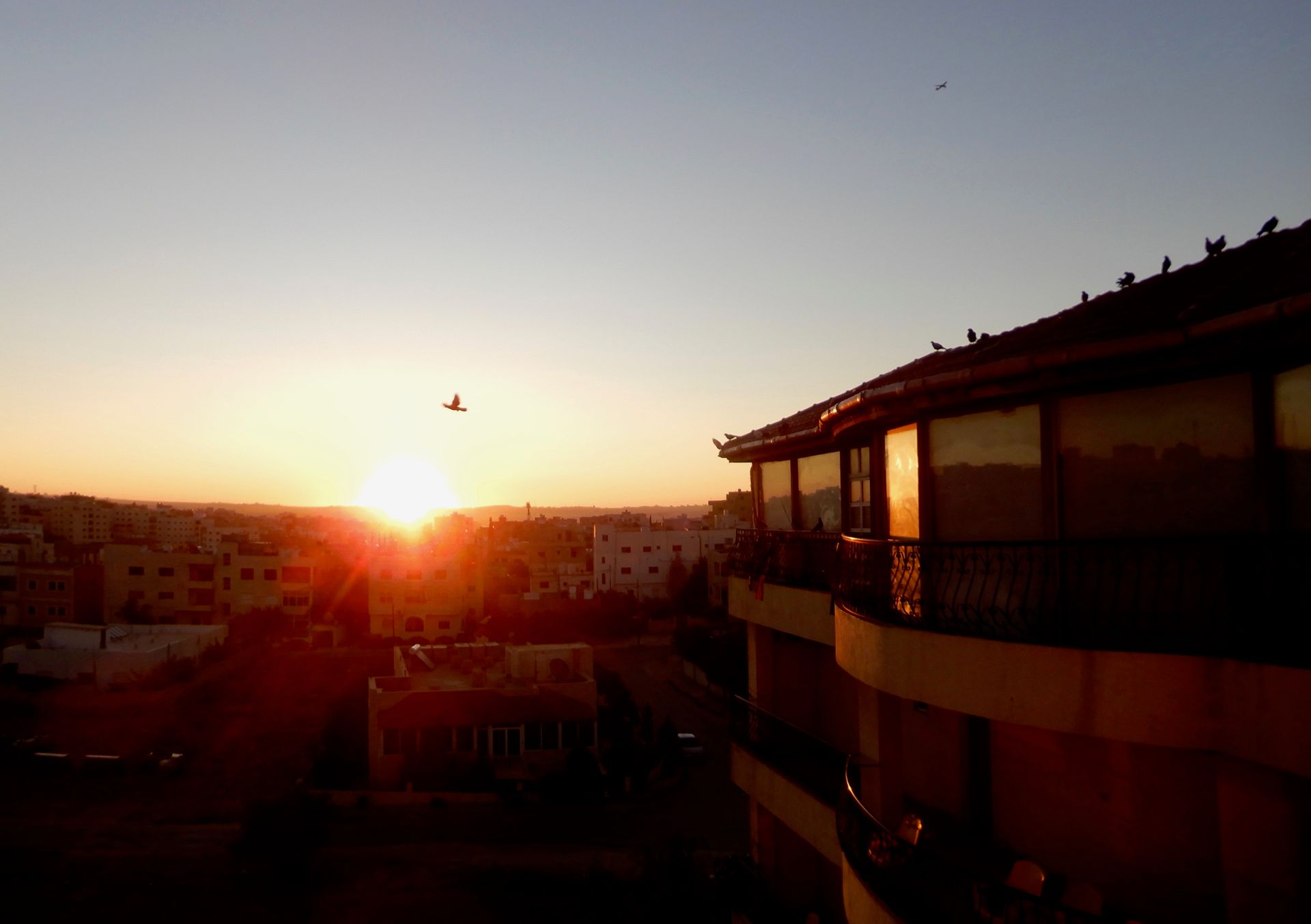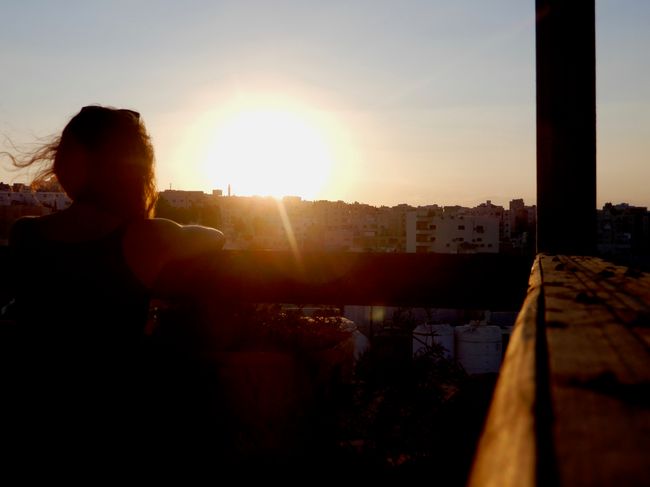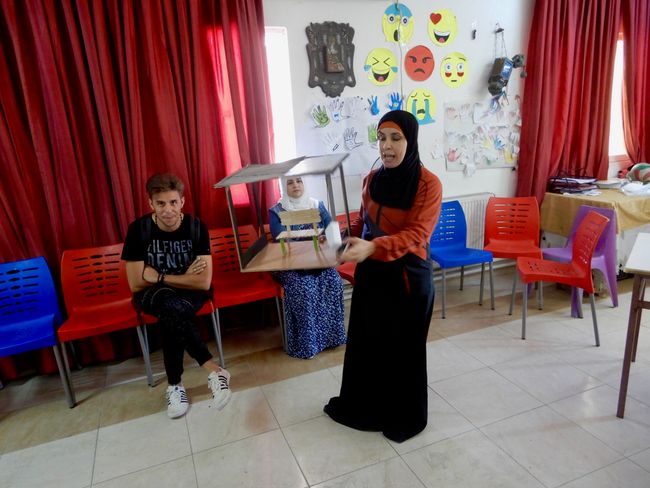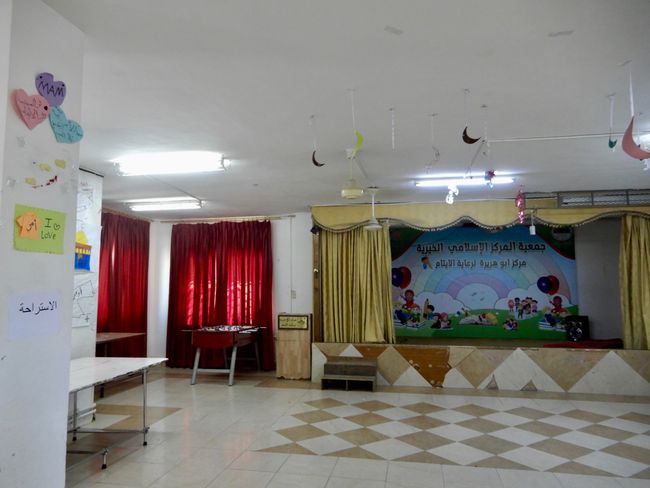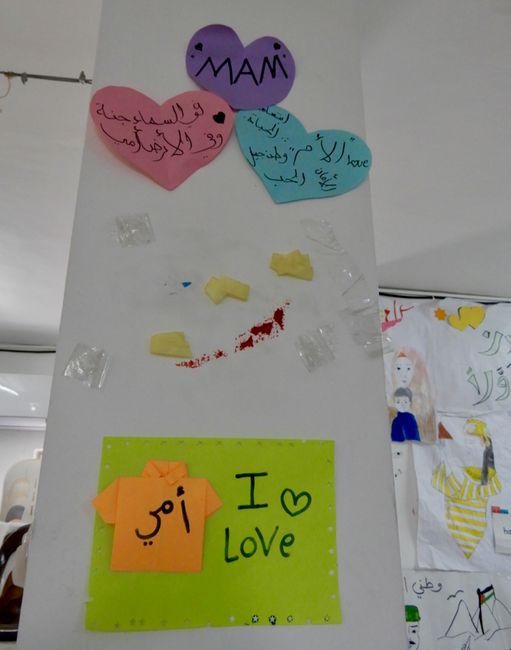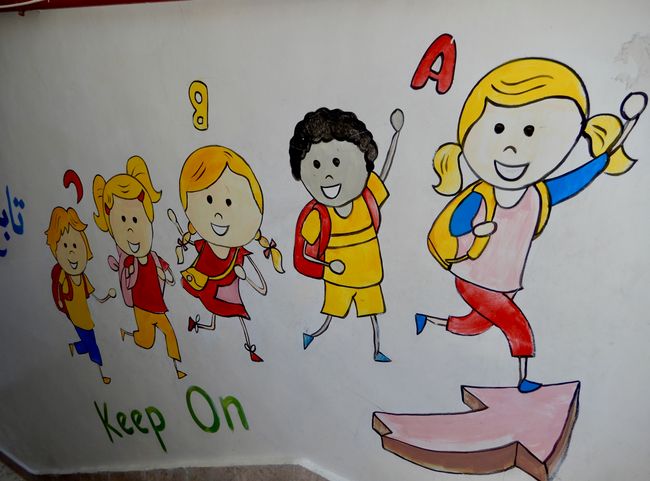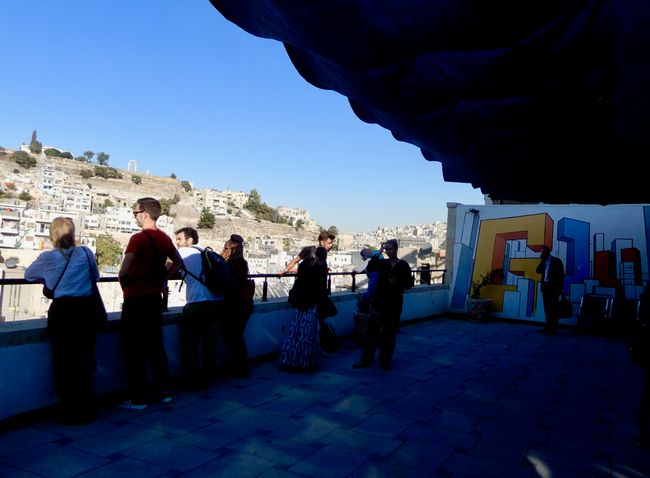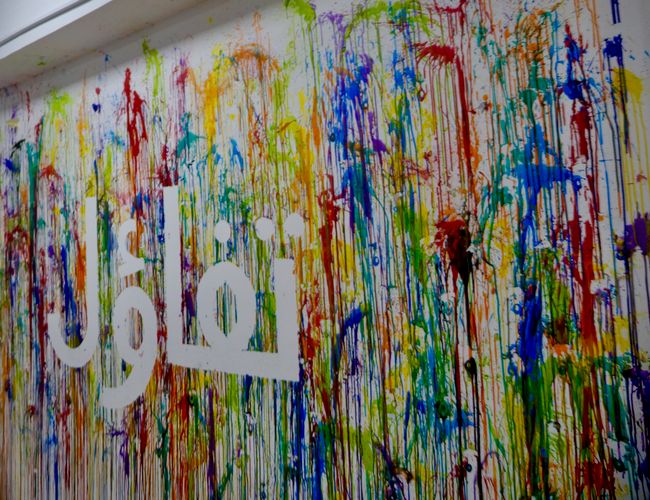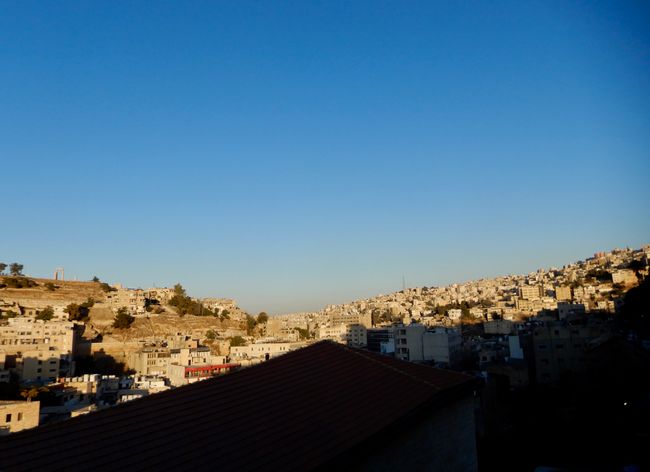We have the role to be human.
प्रकाशित: 26.09.2019
समाचार पत्रिका के लिए सदस्यता लें
Monday, September 23rd
6:30 am. I wake up punctually before my alarm clock rings, so that I still have enough time to go for a swim. The cool water is refreshing and I unexpectedly go to breakfast in a good mood before our bus starts at 8:30 am. Back to Amman, back to two institutions. Today's theme is 'Faith-sensitive social work'. Our first institution: the Islamic Charity Center Society (ICCS).
Our Summer School group is joined today and in the coming days by another project group consisting of students from FHWS, GJU Jordan, and Lebanese students. The entire group has doubled in size and now sits densely packed in a small room. I notice a screen on the wall that shows images from five surveillance cameras in the organization. After a short round of introductions, Alaa, the manager of ICCS, takes the floor. He first says that he sees himself as a global citizen and that one of the Islamic pillars is the understanding that all nationalities and religions are equal. This immediately makes me like him. While a staff member of ICCS distributes Arabic coffee in tiny plastic cups, Alaa tells us about the institution that was founded in 1993 for orphans and needy people in this neighborhood. When many refugees settled here in 2011 due to the war in Syria, the institution added an additional component to help refugees.
Basically, anyone can come to ICCS for help. In the treatment, two groups are distinguished: orphans and non-orphans who are needy for other reasons. Financial support comes from donors who donate 30 JD monthly, which is then given to a needy person and their family, if applicable. It is possible to be supported by multiple donors at the same time. They can then decide for themselves whether they want to have contact with their beneficiary or not. If contact is desired, it is arranged with the mother.
I am confused. How is it possible to arrange with the mother when most clients are orphaned children? Rebecca has the same thought and expresses it out loud. The surprising answer for us: in Islamic understanding, an orphan is a child whose father has died. In a patriarchal society, the father, as the most important head of the family, is obviously the decisive person, and the remaining mother is no longer a full-fledged parent. If the father is still alive and only the mother is dead, the children are also not referred to as orphans. From a feminist perspective, it is hard for me to comprehend, but I try not to judge. We are in a completely different societal system here.
Alaa then informs us that recently the financial support for 80 families had to be stopped at ICCS, as many Jordanians are currently facing financial difficulties due to the declining economy. I hope that the work being done here can still be continued in the future. Besides financial support, children and young people find refuge in the local facilities during the day and are appropriately cared for there.
We now get a tour of the building and the rooms where classes and other activities for the children take place. Since there are currently no clients present, we can move around freely and relaxedly and take a look at everything at our own pace – really no comparison to yesterday's tour. I agree with Sophia that an institutional visit can actually be appropriate and educational for us in this way. The staircase is adorned with colorful pictures of children and a strong-willed ICCS staff member explains to us what takes place in each room. "She’s a tough woman," Pepa comments fittingly. Besides a classroom, there is a larger hall with a stage on the next floor, intended for theater events. On the top floor, there is an area with artificial turf, basketball hoops, and goals where the children can play. We all leave the building very satisfied and start our lunch break.
With full stomachs and in scorching midday heat, we now go to the Catholic Center for Studies & Media (CCSM). Gathered around a large board, in a large hall next to a church, Pater Rifat sits among us and now tells us something about CCSM. The midday slump affects all of us, and I see some eyelids around me closing, while I myself struggle to stay focused. However, it sticks with me that Pater Rifat is also striving with his center to establish peace between people of all faiths and wants to help as many people as possible out of religious love for one's neighbor. He also emphasizes repeatedly that radical groups that use their religion (whatever it may be) as a reason for terrorist attacks have nothing to do with religion in any way. "Religion is part of peace, and never of fighting. We have the role to be human." Agree. Totally.
The last item on the agenda for today: a presentation by a group of three from our Summer School on the topic of faith-sensitive social work. It takes place at GJU in Amman, so we now enter our campus for the first time, where we will attend our lectures during our semester abroad. It is very small, winding, and cute, and has a terrace with a beautiful view of Amman. Here you can observe beautiful sunrises and sunsets, as Adib tells us. The classroom has a manageable size and is furnished with small wooden chairs that have tiny folding tabletops. At the front, there is a modern screen and a projector, as well as access to a terrace – everything you need. The presentation by Sophia, Sana'a, and Fatima is interesting and relevant, and a good conclusion to our day. We wouldn't have been able to absorb more at this point anyway. Day by day, it becomes clearer to me how intensive the program of this Summer School is.
समाचार पत्रिका के लिए सदस्यता लें
उत्तर
